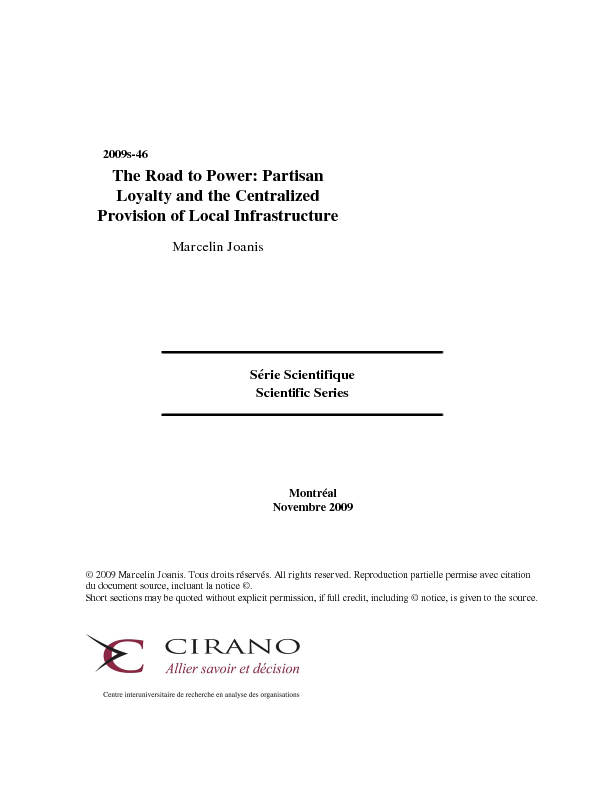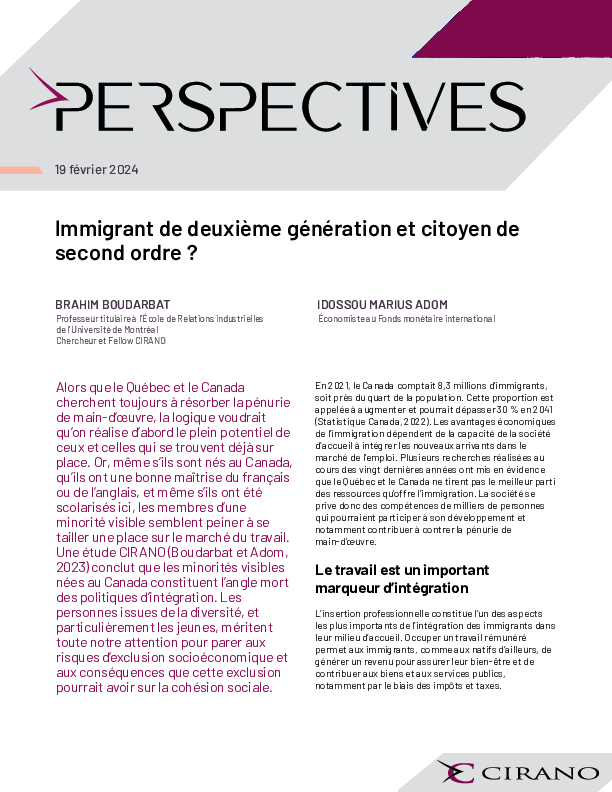The Road to Power: Partisan Loyalty and the Centralized Provision of Local Infrastructure
This paper sets out a simple dynamic probabilistic voting model in which a government allocates a fixed budget across electoral districts that differ in their loyalty to the ruling party. The model predicts that the geographic pattern of spending depends on the way the government balances long-run machine politics' considerations and the more immediate concern to win over swing voters. Empirical results obtained from a panel of electoral districts in Québec provide robust evidence that districts which display loyalty to the incumbent government receive disproportionately more spending, especially close to an election, at odds with the standard swing voter' view.
[ - ]




